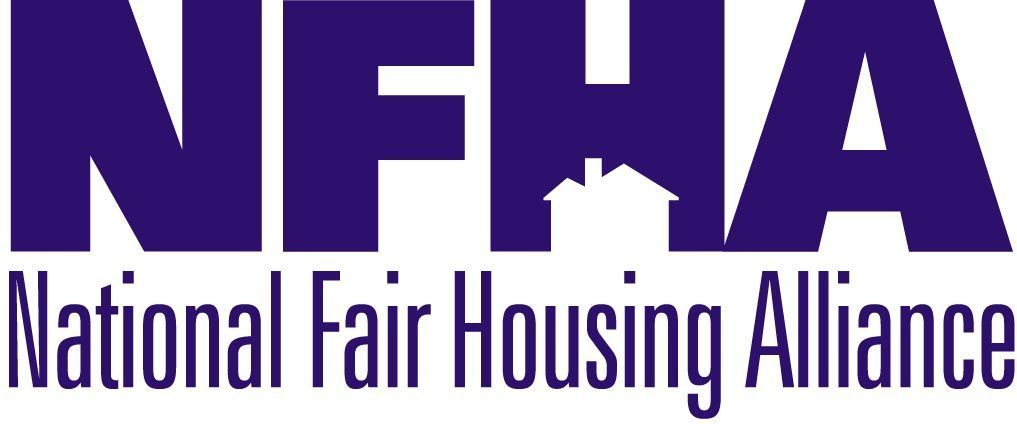New NFHA Report Reveals Highest Number of Housing Discrimination Complaints to Date
- At August 08, 2023
- By fhfla
- In News
 0
0

Washington, D.C. —The National Fair Housing Alliance (NFHA) released data today showing that the number of housing discrimination complaints rose to more than 33,000 nationwide last year, the highest on record. In a troubling turn, domestic violence related complaints saw a noticeable increase along with complaints based on source of income, according to new data published in the latest Fair Housing Trends Report.
There were 33,007 fair housing complaints received last year by private non-profit fair housing organizations (FHOs), the U.S. Department of Housing and Urban Development (HUD), Fair Housing Assistance Program (FHAP) agencies and the U.S. Department of Justice (DOJ), a 5.74 percent jump compared to 2021 when 31,216 complaints were filed. This represents the highest number of complaints ever reported in a single year.
These new findings show that housing discrimination is still affecting many people and communities. But even the unprecedented number of complaints don’t account for the many incidents of housing discrimination that fail to get reported at all due to fear of retaliation or eviction. In other cases, incidents of housing discrimination go undetected or unreported because they are difficult to identify or document.
“This year commemorates 55 years since the landmark Fair Housing Act became law. We have come a long way since then, but the findings of our latest Fair Housing Trends Report indicate that we still have a long way to go in dismantling unfair systems that are driving racial wealth and homeownership gaps, economic inequality, and structural barriers for people of color, people with disabilities, women, immigrants, certain religious groups, and LGBTQ+ individuals.” said Lisa Rice, President and CEO of NFHA. “It is especially concerning that the numbers are trending upward for discrimination complaints involving victims of domestic violence, who are often already burdened with navigating the legal system. Now, these women, men, and children, through no fault of their own, have to bear the consequences of an abuser impacting their ability to secure housing or remain housed.”
Connecticut is one of at least six states that have passed laws making victims of domestic violence a class of persons to be protected from discrimination. Because of the increased protections, fair housing advocates said reporting of instances of discrimination has improved.
“Additional state-level protections have expanded our reach in providing assistance to survivors of domestic violence in a variety of situations such as breaking a lease or transferring units, exceptions to credit policies, and eviction prevention,” said Pamela Heller, staff attorney for the Connecticut Fair Housing Center. “It’s another tool we can use to ensure equal access to housing and to secure safe and habitable conditions for our clients.”
NFHA has produced the Fair Housing Trends Report annually since the mid-1990s as part of its mission to expand access to fair housing and credit opportunities and ensure that all neighborhoods are well-resourced, resilient places of opportunity in which people can thrive. This year, NFHA also developed a new interactive web-based feature to help the public better visualize the Fair Housing Trends Report data. That feature can be accessed here.
The latest report critically underscores the need for federal, state, and local governments to prioritize increasing funds to support the agencies on the frontlines processing and investigating fair housing complaints and working to dismantle barriers and systems that impede progress for all people.
“Given the spike in reported housing complaints during the nation’s fair and affordable housing crisis, we must redouble our efforts to secure adequate resources for the organizations and agencies — on the local, state, and federal level — working to advance fair housing,” Rice added.
FHOs processed 73.94 percent of complaints, compared to 5.80 percent by HUD, 20.15 percent by FHAP agencies, and 0.11 percent by the DOJ. As the numbers show, private fair housing organizations are at the forefront of fair housing enforcement. They are in dire need of more funding and resources to continue their important work of investigating complaints, collecting data, providing fair housing counseling and education to consumers, and helping clients file complaints with appropriate authorities.
As in previous years, the latest findings show that discrimination based on disability accounted for the majority (53.26 percent) of complaints filed with FHOs, HUD, and FHAP agencies.
There were 2,490 complaints based on sex, the highest number recorded since NFHA began collecting such data in 2005. There was also a significant increase of 39.8 percent in complaints regarding source of income last year compared to the year before. And there was a spike in domestic violence complaints, with 289 reported domestic violence complaints last year, compared to 172 in 2021.
This report includes submissions from 86 NFHA member organizations, which are all either private non-profit fair housing organizations or fair housing programs of legal aid agencies. HUD’s 10 regional HUD offices and 77 state and local government agencies that participate in HUD’s FHAP program also provided data. In addition, the report contains information gathered from the DOJ.
Click here to read the full report. Those who believe they have experienced housing discrimination should file a report with their local fair housing agency, local or state government organization, and/or HUD.
National Fair Housing Alliance, FHC and Local Fair Housing Organizations Submit Comment Letter Urging HUD to Strengthen Section 504 Regulations
- At July 31, 2023
- By fhfla
- In News
 0
0

Washington, D.C. — The National Fair Housing Alliance (NFHA) Fair Housing Center of the Greater Palm Beaches (FHC) and many local fair housing centers throughout the country have come together to submit a comment letter in response to the Department of Housing and Urban Development (HUD)’s call for public comment and recommendations regarding modernizing regulations implementing Section 504 of the Rehabilitation Act.
Section 504 of the Rehabilitation Act of 1973 was a landmark piece of legislation designed to prohibit discrimination based on disability in federally funded programs and activities, including housing. However, HUD was the last executive agency to implement Section 504 regulations in 1988. As stated in the advanced notice of proposed rulemaking (ANPRM), the 1988 regulations have not been meaningfully updated in the last 35 years.
HUD has continued to find discrimination on the basis of disability in HUD-assisted programs and activities, as well as an ongoing need for affordable, accessible, and integrated housing opportunities for individuals with disabilities who are eligible for the programs and activities administered by recipients of federal financial assistance from HUD.
https://www.hud.gov/504
In the joint comment letter, the signatories applaud HUD for recognizing the need to modernize these regulations.
“Since the Rehabilitation Act’s passing, developments in case law under the Americans with Disabilities Act (ADA) and the Fair Housing Act (FHA) have changed the landscape of disability rights advocacy, and these developments should be codified and enforced through the new final rule,” said Morgan Williams, NFHA’s General Counsel.
The data from the 2021 American Community Survey (ACS) highlights the urgency of the matter. The data shows an estimated 42.5 million individuals, constituting 13 percent of the civilian noninstitutionalized population, living with disabilities. The Centers for Disease Control and Prevention (CDC) estimates that up to 27 percent of adults in the United States live with some type of disability, and that one in six children have one or more developmental disabilities or delays.
NFHA urges HUD to further collaborate with fair housing organizations, disability rights advocates, and other stakeholders to ensure that the final rule comprehensively addresses the unique challenges faced by individuals with disabilities.
NFHA and the undersigned fair housing organizations outline five core areas of focus in their comment letter:
1. Inclusivity and Integration: The organizations stress the need for regulations that promote inclusivity and enable individuals with disabilities to live in the most integrated settings possible for each individual.
2. Increasing Accessible Housing: Addressing the growing number of individuals living with disabilities, the comment letter urges HUD to enhance and diversify the availability of accessible housing throughout the country.
3. Modernization and Harmonization: NFHA and its partners propose modernizing and harmonizing HUD’s Section 504 regulations to align with current law and well-established principles, streamlining enforcement and compliance.
4. Removing Unnecessary Barriers: The coalition calls for the elimination of unnecessary barriers that hinder individuals with disabilities from obtaining accessible housing.
5. Strong Enforcement Mechanisms: Recognizing the importance of robust enforcement, the organizations advocate for efficient mechanisms to ensure compliance with HUD’s Section 504 regulations.
Furthermore, the comment letter provides detailed recommendations for strengthening and clarifying the regulations in specific areas, including reasonable accommodations, auxiliary aids and services, accessibility in shared areas, housing choice vouchers, and disaster recovery.
“The history of Section 504 of the Rehabilitation Act includes more than six decades of disability advocates consistently pressing to have their rights recognized, codified, and enforced…The ANPRM was a significant opportunity for advocates and stakeholders to help shape regulations that will impact the lives of millions,” Williams added.
By promoting accessible housing, removing discriminatory barriers, and enforcing Section 504 regulations effectively, HUD has the opportunity to create a more just and equitable society, ensuring that individuals with disabilities can fully participate in their communities and lead fulfilling lives. The public comment period closed on July 24, 2023, and NFHA and its member organizations will continue to monitor the progress of the situation. Click here to read the letter.
NFHA was assisted with research and drafting on this matter by Relman Colfax PLLC, a Washington, D.C.-based civil rights law firm, including the assistance of attorney Sara Pratt.
Lawsuit alleges Woman was Sexually Harassed by Realtor
- At July 20, 2023
- By fhfla
- In News
 0
0
 A lawsuit filed by Housing Opportunites Project for Excellence (HOPE, Inc.) alleges that a South Florida woman was sexually harassed by her realtor; HOPE, Inc. connected her with legal representation. Please click here for the story and video from CBS – https://www.cbsnews.com/miami/video/woman-says-she-was-sexually-harassed-by-realtor/
A lawsuit filed by Housing Opportunites Project for Excellence (HOPE, Inc.) alleges that a South Florida woman was sexually harassed by her realtor; HOPE, Inc. connected her with legal representation. Please click here for the story and video from CBS – https://www.cbsnews.com/miami/video/woman-says-she-was-sexually-harassed-by-realtor/
From HUD: Sexual harassment by housing providers is illegal under the Fair Housing Act and other federal laws. The Fair Housing Act and other federal laws prohibit sexual harassment. These laws also prohibit harassment because of race, color, religion, national origin, familial status, or disability.
Justice Department says new Florida law restricting Chinese land ownership violates Fair Housing Act
- At June 30, 2023
- By fhfla
- In News
 0
0

On June 27, 2023, the United States filed a Statement of Interest in Shen v. Simpson (N.D. Fla.), a lawsuit challenging provisions of a new Florida law, SB 264. Among other things, the law prohibits individuals who are “domiciled” in certain foreign countries, particularly China, from purchasing real property in the state; sellers of real property and individuals who own or acquire real property in violation of the law may be subject to civil and criminal penalties. In its filing, the United States supports the ACLU’s motion to enjoin implementation of these provisions.
The brief explains that SB 264’s property ownership restrictions violate the Fair Housing Act because they discriminate based on a person’s national origin and violate the Equal Protection Clause of the Fourteenth Amendment because the restrictions are not narrowly tailored to serve any compelling government interest. The United States Attorneys in all three Florida judicial districts signed on to the brief.

